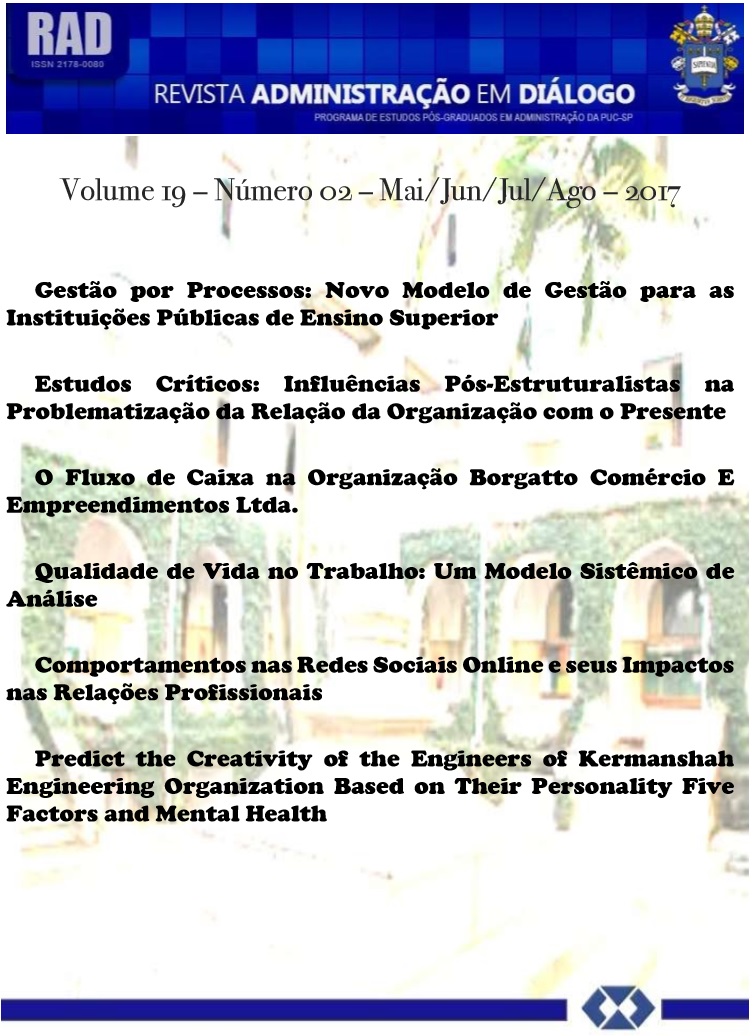Behaviors Adopted at Social Online Networking and the Impacts on Professional Relations
DOI:
https://doi.org/10.20946/rad.v19i2.31143Keywords:
Online Social Network, New Technologies, Identity Management.Abstract
With the increasing number of cases in which the role of individuals in the work environment has been influenced by the behaviors adopted at social online networking, the study had the purpose to identify the impacts of the online boundary management behaviors in the professional relationships. The data was collected by quantitative research, with 188 professionals that work at the Brazilian context with access to online social networks. The participants responded questionnaires related to four online boundary management behaviors (open, audience, content and hybrid) and their consequences to respect and liking. The results demonstrated that open behaviors are more likely to reduce respect and liking, in comparison to the audience, content and hybrid behaviors. Concerning audience behaviors, it has been verified that they are more likely to reduce respect and liking, in comparison to content and hybrid behaviors.
Downloads
Published
How to Cite
Issue
Section
License
Authors who publish in this journal agree to the following terms:
1. Authors retain the copyright and grant the journal the right of first publication, with the work licensed simultaneously under a Creative Commons Attribution License after publication, allowing the sharing of work with acknowledgment of the authorship of the work and initial publication in this journal.
2. Authors are authorized to take additional contracts separately, for non-exclusive distribution of the version of the work published in this journal (eg publish in institutional repository or as a book chapter), with acknowledgment of authorship and initial publication in this journal.
3. Authors are allowed and encouraged to publish and distribute their work online (eg in institutional repositories or on their personal page) at any point before or during the editorial process, as this can generate productive changes, as well as increase the and the citation of the published work (See The Effect of Free Access).








